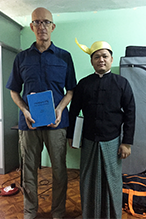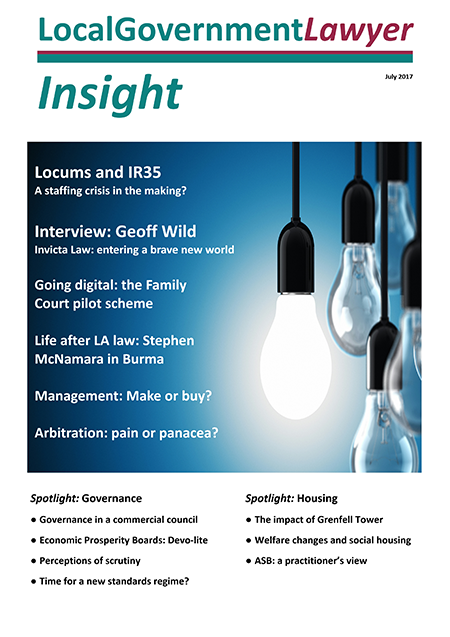Burmese days
 Stephen McNamara, former head of legal at Bristol City Council, is currently volunteering setting up justice centres in Yangon. Here he gives his first impressions on life and the law a long way from home.
Stephen McNamara, former head of legal at Bristol City Council, is currently volunteering setting up justice centres in Yangon. Here he gives his first impressions on life and the law a long way from home.
After too long as Head of Legal at Bristol City Council (15 years 234 days 2 hours 13 minutes and 12 seconds) and too short a time as a consultant in Bristol with Veale Wasbrough Vizards (3 years @ 2 or 3 days a week), I find myself working in Yangon for Myjustice as a VSO volunteer, whilst still working for VWV on a radical ‘working from home policy’ .
Myjustice
Myjustice (www.myjusticemyanmar.org) is implemented by the British Council and funded by the European Union. The fundamental objective is to increase “Access to Justice” in Myanmar (Burma - even the country’s name is contentious).
I am based at the Yangon Justice Centre. The Justice Centres primarily provide free legal representation in criminal cases to those who cannot afford a lawyer. The Centres are funded on a grant basis by Myjustice.
There is no state provision for legal aid i.e. no state funding (save in death penalty cases). We are seeking to support the work of the Centres . There is limited pro bono support, and so the vast majority of the accused go through the court system without support/ advice or representation
There are numerous challenges. This is not the place to rehearse the history or difficulties (economic, historical, political etc, etc) facing Myanmar . But, there is hope of a better future.
The monsoons have arrived and it is wet, wet and wet. My partner and I live downtown within earshot of many keen vociferous nocturnal religious groups. My work, and my home life have prevented me from beginning to study the constitution of the Yangon Development Corporation (the local local authority), but I will. NB if your local authority is so inclined then do remember The Localism Act 2011 s1(4)(a).
The legal system is Victorian and colonial. The fundamental statutes include: the Evidence Act (1882), the Penal Code (1860) and the Code of Criminal Procedure (1898) - these being developments of Indian colonial legislation.
The Constitution of the Union of Myanmar (2008) has a “consistent objectives” and a “Basic Principle”: “Enhancing the eternal principles of Justice, Liberty and Equality” (Art 6(e)).
The World Justice Project (www.worldjusticeproject.org) rates Myanmar 98th out of 113 countries (14th out of 15 in the sub-region). There is a disparity between legal theory and legal practice.
I am developing training modules with the aspiration that these will encourage Myanmar lawyers to use the law to challenge bad practice. The challenges would be by writ or by appeal and would need to be pursued to the Supreme Court
If you are interested in learning about Myanmar criminal law- its challenges /curiosities and my hopes for my training modules then contact me. If you are ever in Yangon then I will treat you to beer and mohinga (fish soup).
Stephen McNamara is a consultant at Veale Wasbrough Vizards.
This email address is being protected from spambots. You need JavaScript enabled to view it.

This article was first published in the July edition of Local Government Lawyer Insight, which can be accessed at http://www.localgovernmentlawyer.co.uk/insight Insight is published four times a year and is circulated free-of-charge to all Local Government Lawyer newsletter subscribers (click here to subscribe) in electronic format. A single hard copy is also circulated to all local authority legal departments in England and Wales. Additional printed copies are available for just £49.95 for four issues. Multiple copies are also available at £149.95 for five or £249.95 for 10. Payment can be made by purchase order/invoice or by credit/debit card. To order, please call 0207 239 4917 or email This email address is being protected from spambots. You need JavaScript enabled to view it.. |
